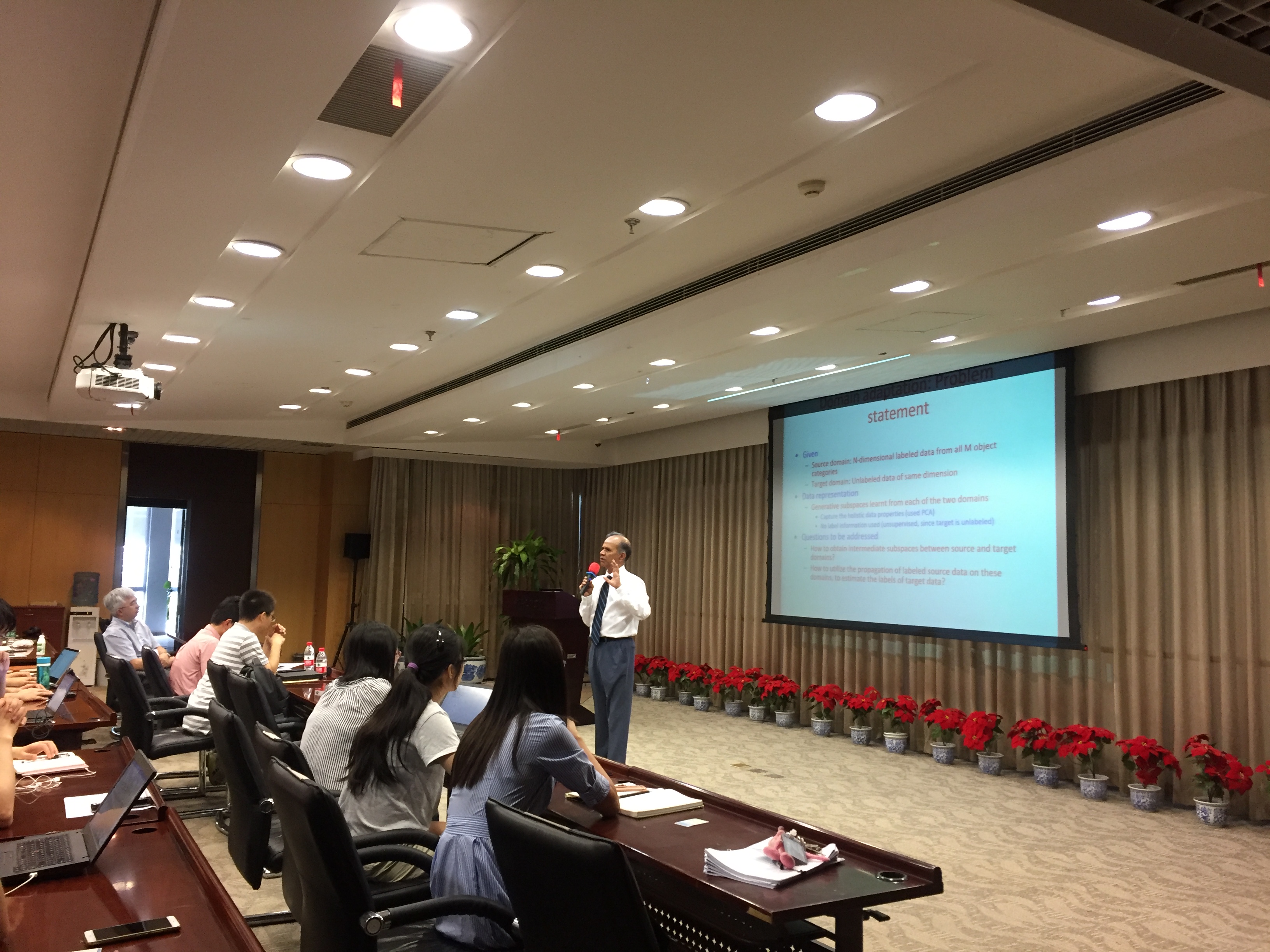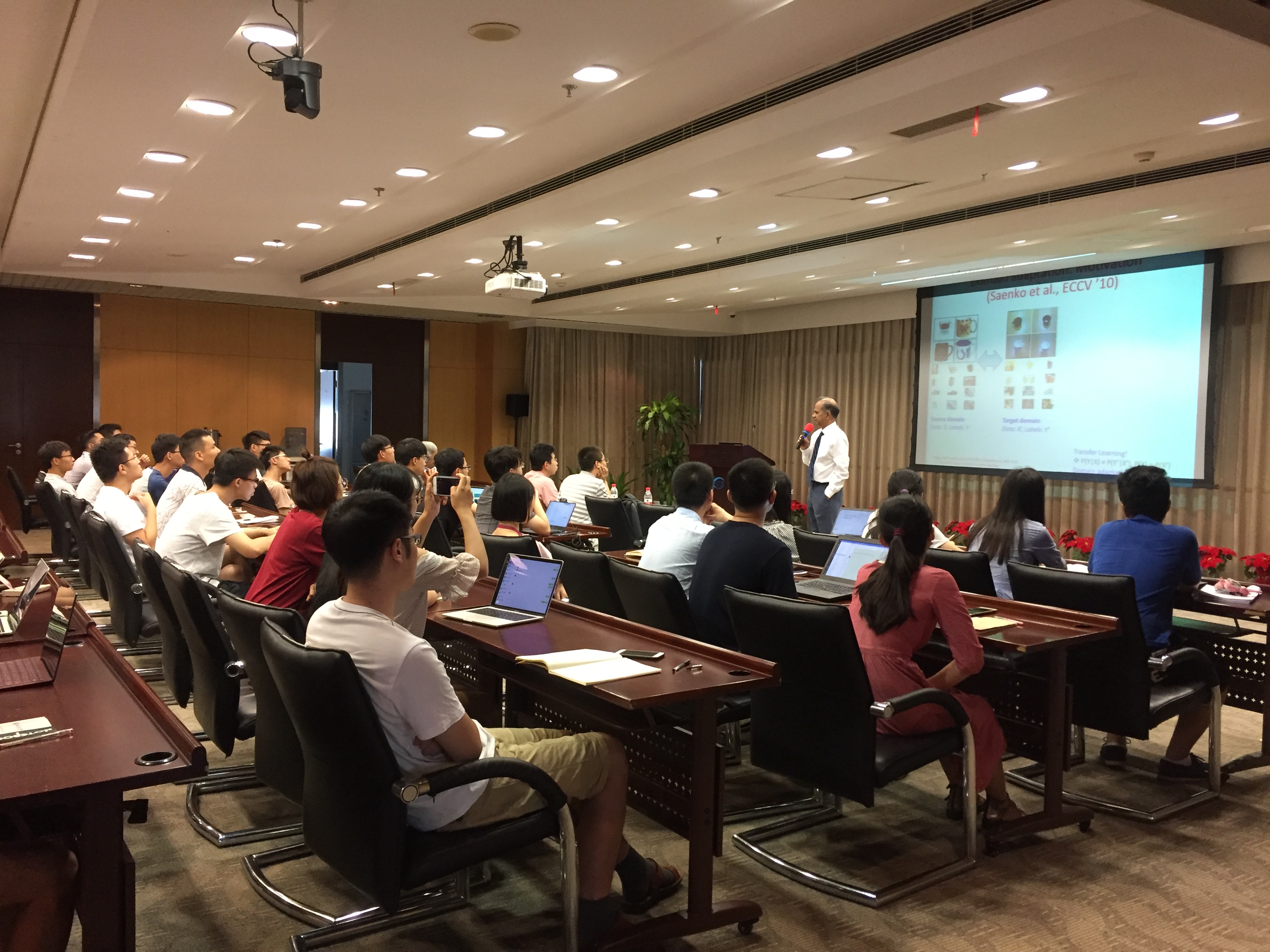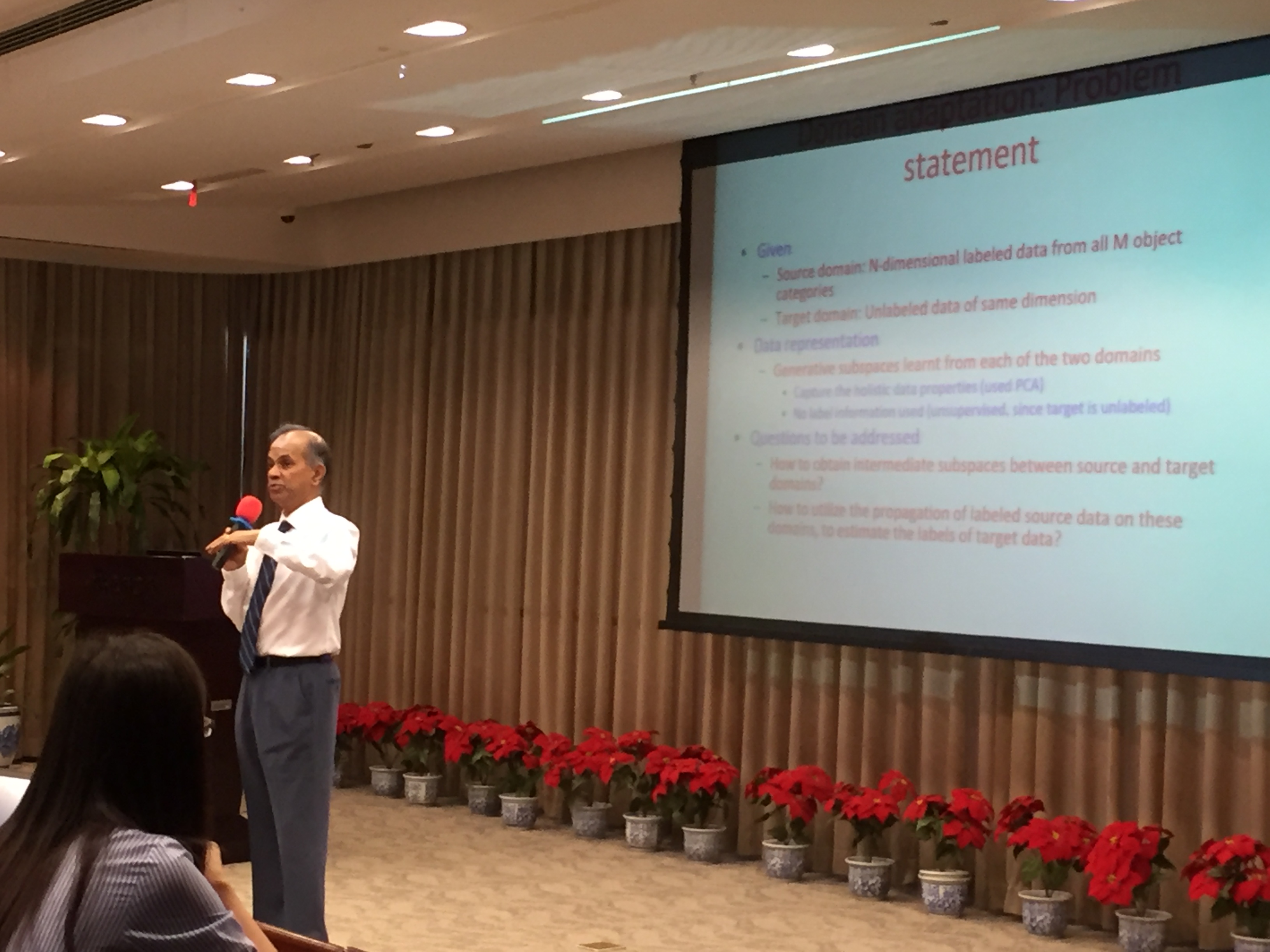
报告题目:Domain adaptation using manifolds, dictionaries and generative adversarial networks
时间:8月20日上午09:50-10:40
地点:计算所四层报告厅
报告摘要:Domain adaptation techniques refer to a class of methods that attempt to bridge the differences between the distributions of training and test data. This classical problem in pattern recognition and machine learning has generated renewed interest due to the multitudes of ways in which data is collected. First, we review recent methods developed for unsupervised domain adaptation using Grassmannian representations. Next, we present methods for unsupervised domain adaptation using sparse representations such as dictionaries. Finally, we propose an approach that leverages unsupervised data to bring the source and target distributions closer in a learned joint feature space. This is accomplished by inducing a symbiotic relationship between the learned embedding and a generative adversarial network. We demonstrate the impact of these methods for object/face/action recognition problems.
报告人简介:Prof. Rama Chellappa is a Distinguished University Professor, a Minta Martin Professor of Engineering and Chair of the ECE department at the University of Maryland. His current research interests span many areas in image processing, computer vision, machine learning and pattern recognition. Prof. Chellappa is a recipient of an NSF Presidential Young Investigator Award and four IBM Faculty Development Awards. He received the K.S. Fu Prize from the International Association of Pattern Recognition (IAPR). He is a recipient of the Society, Technical Achievement and Meritorious Service Awards from the IEEE Signal Processing Society. He also received the Technical Achievement and Meritorious Service Awards from the IEEE Computer Society. Recently, he received the inaugural Leadership Award from the IEEE Biometrics Council. At UMD, he received college and university level recognitions for research, teaching, innovation and mentoring of undergraduate students. In 2010, he was recognized as an Outstanding ECE by Purdue University. He received the Distinguished Alumni Award from the Indian Institute of Science in 2016. Prof. Chellappa served as the Editor-in-Chief of PAMI. He is a Golden Core Member of the IEEE Computer Society, served as a Distinguished Lecturer of the IEEE Signal Processing Society and as the President of IEEE Biometrics Council. He is a Fellow of IEEE, IAPR, OSA, AAAS, ACM and AAAI and holds six patents.




附件下载:
